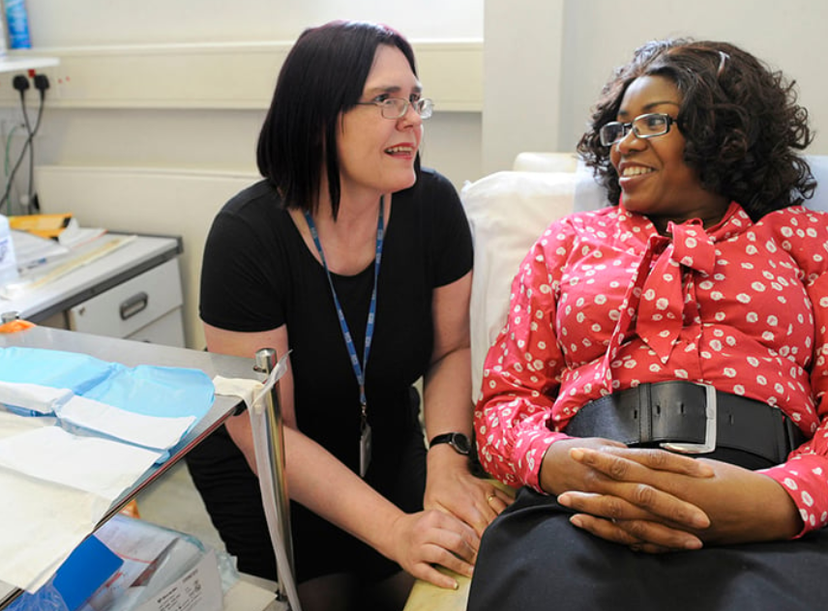New drug combination targets treatment-resistant ovarian cancer
With fewer side effects than traditional therapies, this innovative treatment could redefine care for patients facing limited options
30 Oct 2024
A combination of two drugs that can block the growth of cancer cells has shown promising results in women with a form of ovarian cancer that rarely responds to chemotherapy or hormone therapy.
Results from the RAMP 201 study, led by Professor Susana Banerjee, Consultant Medical Oncologist, and Research Lead for the Gynaecology Unit at The Royal Marsden NHS Foundation Trust and Professor in Women’s Cancers at The Institute of Cancer Research, London, and President of Oncology for The Royal Society of Medicine, were presented at the International Gynecologic Cancer Society’s annual global meeting on Thursday 17 October 2024.
The findings showed that in 115 participants with low-grade serous ovarian cancer, 31 percent saw their tumors shrink or stop growing when taking a combination of avutometinib and defactinib. This is in comparison to a 0-10 percent response rate to chemo or hormone therapies in patients with rare ovarian cancer. Both drugs are designed to block signals that encourage cancer cells to grow.
Fewer treatment side effects
The new data also showed that only 10 percent of patients discontinued the trial, demonstrating that the majority of patients could sustain treatment for longer and therefore receive more of the benefits of therapy. In most cases where some side effects affected everyday life, dosage management was employed to limit the impact on patients and ensure that they could continue with treatment.
Professor Susana Banerjee, Consultant Medical Oncologist and Research Lead for the Genecology Unit at The Royal Marsden NHS Foundation Trust and Professor in Women’s Cancers at The Institute of Cancer Research, London said:
"These are significant results from the second phase of the trial. The toxicities for patients are much lower which means side effects are fewer than with some conventional treatments.
“The combination of avutometinib and defactinib promises a new standard of care for people with recurrent low-grade serous ovarian cancer. We're now looking to recruit patients for our phase three trial and hope results will continue to show better outcomes for patients."
Promising responses in KRAS mutations
Responses in patients who had a mutation in a gene called KRAS were even more promising with 44 percent of patients seeing their tumor shrink. KRAS is one of the most commonly mutated genes in cancer, found in one quarter of all tumors.
Until recently, KRAS-driven tumors were extremely difficult to treat due to their smooth surfaces, making it difficult for small molecules in treatments like chemotherapy to bond to the tumor.
Changing clinical practice globally
The study will now go to a bigger randomized trial in order to directly compare its efficacy for patients with low-grade serous ovarian cancer against chemotherapy or hormone therapy.
However, clinicians are hopeful that this new drug combination will change practice globally for cases of low-grade serous ovarian cancer and most importantly improve outcomes for patients with limited treatment options.
The new results have led on from the earlier phase I FRAME trial, led by a team at The Institute of Cancer Research (ICR) and The Royal Marsden NHS Foundation Trust, which tested the drugs – called VS-6766 and defactinib – in 25 patients with low-grade serous ovarian cancer. Overall, nearly half (46 percent) of patients saw their tumors shrink significantly in response to the treatment.
Want the latest science news straight to your inbox? Become a SelectScience member for free today>>
